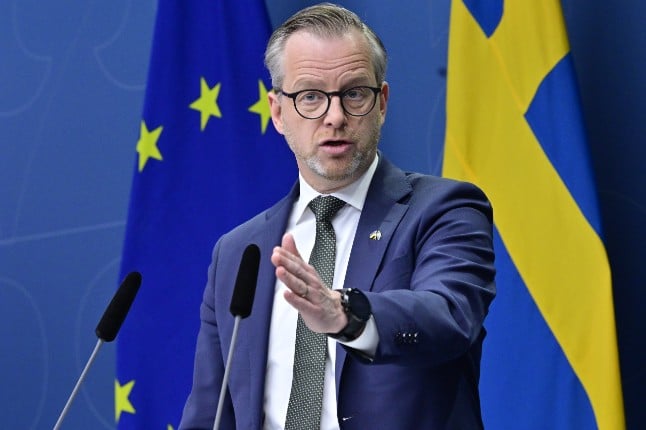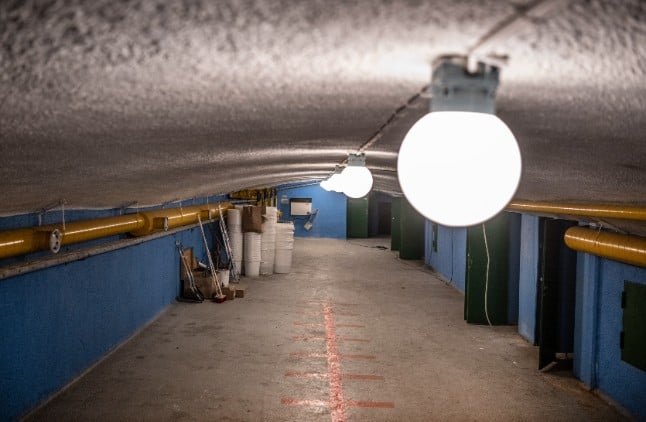The National Institute of Economic Research (Konjunkturinstitutet, KI) estimated that the Swedish economy will grow 5.6 percent this year in its Swedish Economy December 2010 report released on Tuesday.
“The Swedish economy is growing at record speed,” division director Peter Svensson said in a statement.
Sweden last witnessed GDP growth above 5.6 percent in 1954 and 1961 at 5.7 percent, 6.8 percent in 1964 and 6.5 percent in 1970.
KI suggests that the Swedish government should invest another 25 billion kronor ($3.66 billion) in unfunded measures in its 2011 budget in addition to the 13 billion kronor already proposed.
“The need to stimulate demand is greatest in the near future when resource utilisation in the economy is low,” KI wrote in a statement.
Sweden’s economy is growing strongly and at a much higher pace than in many other OECD countries. Domestic demand is rising faster than GDP and is playing an unusually important role in the country’s recovery, KI wrote.
High unemployment means that there are spare labour market resources. Consequently, employment can increase without overheating the labour market.
The Swedish economy is in an upward spiral, with rising demand leading to increased output and higher employment, which in turn boosts demand, KI added.
“Although growth will fall off considerably in the period ahead, it will still be strong in the next two years at 3.8 percent in 2011 and 2.9 percent in 2012,” wrote Kristian Nilsson, KI’s director of forecasting, in a statement.
KI has increased its GDP forecast substantially in line with other forecasts. However, it sees growth falling considerably to 3.8 percent next year and 2.9 percent in 2012.
It also expects employment to grow by an additional 2.5 percent in 2012 compared with 2010, representing 110,000 people, but unemployment is falling slowly, with KI expecting it to reach 7.5 percent in 2012.
KI believes that inflation will fall below Sweden’s central bank, the Riksbank’s, inflation target of 2 percent in both 2011 and 2012. As such, the Riksbank does not need to raise interest rates as much as it has previous projected.
KI expects the benchmark interest rate, the repo rate, to reach 2 percent at the end of 2011 and 2.75 percent in late 2012 compared with the current 1.25 percent.
“However, we recommend that the bank move a bit slower until next time. Sweden needs a little breathing room in the spring. There are still low inflationary pressures and we have moderate wage increases,” KI general director Mats Dillén told news agency TT on Tuesday.
Both Nordea and SEB’s chief economists recommend the Riksbank continue to raise interest rates in the spring.
“We think it is right to raise rates. Both households and business sector can cope with higher interest rates. We are getting closer to a normal business cycle and interest rates need to be raised to slow indebtedness,” said Annika Winsth at Nordea.
Nordea is even more optimistic than KI about Sweden’s unemployment picture, estimating that it will decline to 6.5 percent in 2012.
“We do not share the view that there will be plenty of spare capacity in the economy,” said Winsth.
Robert Bergqvist at SEB warned that it is easy to lose perspective when talking about interest rate hikes, that one simply looks at increases and not at what the rate of interest actually is – which at present is very low.
“Given the momentum in the Swedish economy, we believe that it is reasonable that the Riksbank will continue to raise interest rates in the spring,” said Bergqvist.
The so-called barometric indicator fell by three points between November and December.
“The indicator is still at a very high level, near the peak of the fall of 2000,” KI wrote.
Slightly worsening prospects in the manufacturing industry, commerce and the private service sector contributed to the declining indicator. However, the construction sector continues to point upwards, according to KI.
At the same time, households are slightly less optimistic about the economy than before. Household confidence fell for the third consecutive month by 1.7 points to 20.8, which is still considerably higher than the historical average.



 Please whitelist us to continue reading.
Please whitelist us to continue reading.
Member comments